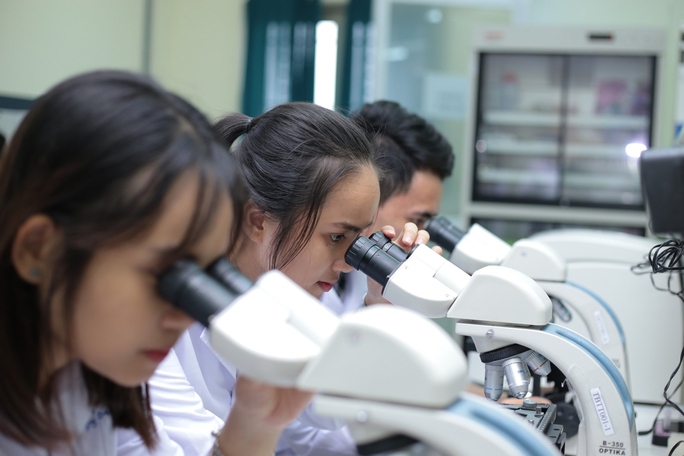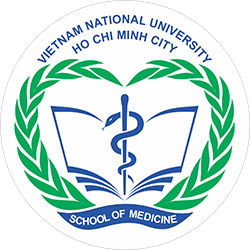Can genetic testing be used to detect cancer at any time?
2023-08-30 06:18:00
Genetic testing will determine whether we carry the mutated gene and the risk of developing the disease, thereby screening for cancer.
PhD. MD. Nguyen Hoai Nghia – Director of the Institute of Medical Genetics – said that genetic testing is increasingly focused on detecting and treating diseases, especially cancer.
One in 31 people carry the cancer gene.
PhD. MD. Nguyen Hoai Nghia said that through the research data of the Institute of Medical Genetics, 1 in 31 people have inherited cancer genes; people with family or personal history of cancer, the incidence of inherited cancer mutations accounts for 4.2%; There is no family or personal history of cancer, the incidence of inherited cancer mutations is 2.6%.
According to PhD. MD. Nguyen Hoai Nghia, one of the common genetic tests in many countries is to apply liquid biopsy techniques. Genetic testing will determine whether we carry the mutated gene and how likely we are to develop the disease. For people at high risk, it is recommended to get screened more often so that early-stage cancer can be detected.
In treatment, decoding and finding mutated genes in cancer also helps patients receive effective targeted treatment and reduce side effects. Alternately, you can treat immunity by assisting your body’s defence against cancer cells. Genetic testing can also detect the remnants of tumors in the body.
Prof. PhD. MD. Nguyen Sao Trung – Ho Chi Minh City University of Medicine and Pharmacy, Vice Chairman of Ho Chi Minh City Medical Association – said the science of genome research, mainly the research of genome application, i.e. the research of DNA and RNA. DNA makes up genes. Everyone has their own genome, unlike any other. A full human genome has about 20,000 genes with 3 billion base pairs. The base pairs are arranged separately for each person, controlling all cellular activities – that is, controlling all body activities, controlling the development of individual characteristics of each part of each person, making each person have its own unique shape and characteristics; for example, height, skin color, hair color… Mutations in genes, due to changes in the arrangement of DNA base pairs, can cause disease. So a clear understanding of DNA will tell us specifically about how the body works and what changes it makes in the presence of disease.

PhD. MD. Nguyen Van Vinh Chau, Deputy Director of Ho Chi Minh City Department of Health, said that in Ho Chi Minh City, genomic medicine is used to identify strains of the virus such as hand-foot-and-mouth; dengue fever; COVID-19… Up to now, thanks to the application of gene sequencing techniques in Vietnam, monitoring the penetration of viral variants helps to promptly develop a disease prevention plan.
Regarding genetic testing for cancer, PhD. MD. Nguyen Van Vinh Chau said that it should be carefully considered, and should only be used in case of necessity, not everyone should be tested. Because when the results show that someone is at risk of cancer, it is easy for them to fall into anxiety and depression, and the quality of life decreases. In fact, genetic testing is only one of the factors for doctors to make a diagnosis of risk, but the probability is not clear. If you get cancer in 10 years, instead of getting tested, we should spend that time to change our lifestyle in a healthy way, ”PhD. MD. said.
PhD. MD. Nguyen Van Vinh Chau also emphasised that genetic testing is abused and over-promoted by some establishments. Along with that, genetic counseling is not possible for everyone, if the consulting team of doctors does not do well, it is easy for the testers to worry unnecessarily. Therefore, experts should approach genetic testing with specific strategies, helping medicine detect gene abnormalities to provide appropriate prevention and treatment.
Find a better and cheaper treatment.
According to Prof. PhD. MD. Nguyen Sao Trung, the benefits of the genome will help to screen, detect and diagnose diseases early. Because genomic data provides the genetic code of each patient, it can help to identify a higher risk of certain diseases, helping to identify better and cheaper treatments. Currently, genetic testing is being carried out from the need to exploit health history; genetic counseling according to needs depending on health history and pathological condition; genetic testing according to needs; individualized and prophylactic treatment… In addition, it can be integrated into medicine and pharmacology to develop drugs suitable for each patient.
(Hai Yen-NLD)





